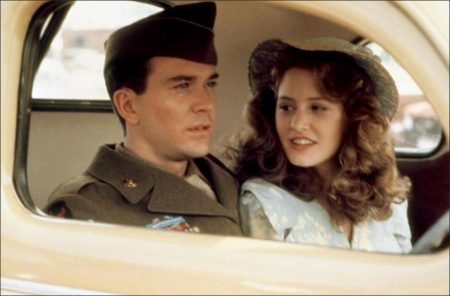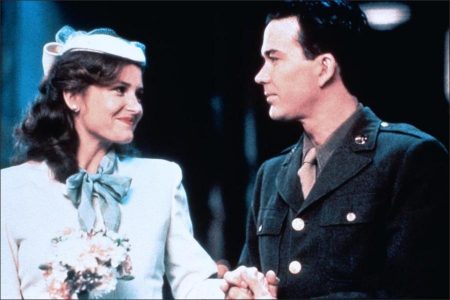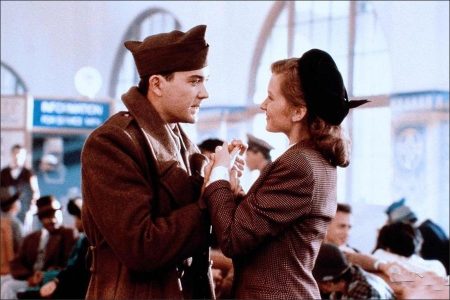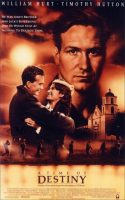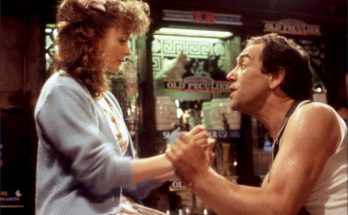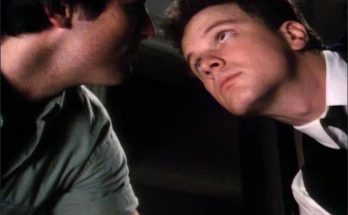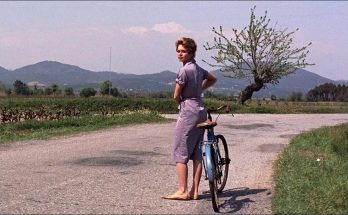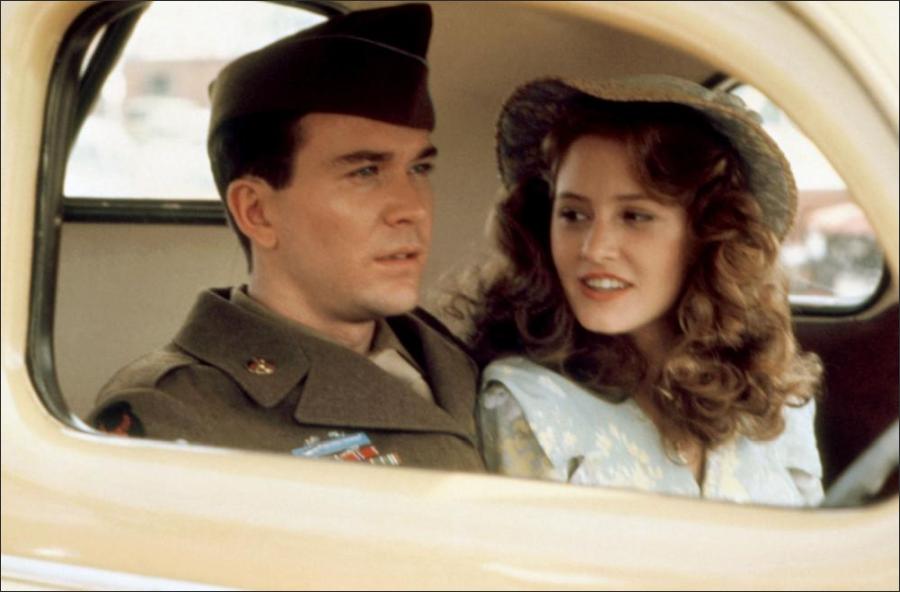A Time of Destiny movie synopsis. Josie elopes with Jack against her father’s wishes. Her father follows her to the hotel where they are staying and forces Josie to go with him. Jack in turn follows resulting in an accident that leaves her father dead.
Marty her brother, who was despised by their father over something he did years ago, sees Jack while grieving over his father and then follows him to Europe where they were fighting the war and was about to kill Jack, when something happened that prevented him. The next thing he knows is that the two of them are being decorated, and somehow the two of them become comrades in arms but when the war ends will their friendship continue or will Marty continue what he set out to do in the beginning?
A Time of Destiny is a 1988 American drama film directed by Gregory Nava and written by Nava and Anna Thomas. The story is based on the opera La forza del destino by Verdi. The motion picture was executive produced by Shep Gordon and Carolyn Pfeiffer. It features original music by veteran composer Ennio Morricone. Set during World War II in Italy and San Diego, the film tells of two friends who become enemies during the war.
Film Review for A Time of Destiny
“A Time of Destiny” is a film of strong, pure emotions, of which the most powerful are love, hate and jealousy. It is not a film about timid little people peeking out of their small lives, but about characters whose motives are so large they are operatic and whose faults are so ancient they are biblical. Any criticism of this film on the basis of implausibility misses the point.
The movie tells the story of a proud, flawed family and the outsider who marries into it. The sickness of the family flows from the father, a proud Sicilian immigrant who has found success in California in the years before World War II but still rules his life and family by Old World paternalism. As the movie opens, one of his sons is dead, another son is all but disowned, and all of his love and possessiveness is focused on his youngest child, a daughter. When she elopes to get married, his rage and jealousy are towering.
The old man is played by Francisco Rabal, as a survivor with a fierce stubbornness. He knows he is right, and one of the things he is right about is this: Few men, if any, are good enough for his daughter. She is played by Melissa Leo, as a girl caught halfway between modern America and the values of her childhood. And the man she elopes with, one rainy night, is played by Timothy Hutton as the kind of straight-arrow American who seems commonplace against this convoluted family’s deep passions.
If jealousy is a family disease, the old man is the carrier but his son is the victim. The son is also an enigma. Played by William Hurt as a man who seems, at first glance, confident and competent, he is actually on the edge of emotional collapse. His father has no use for him because of his history of failure – failure, we suspect, inspired by the father’s inability to make room inside the family for more than one strong man. The Hurt character has grown up into a man filled with grandiose notions of family tradition and pride, and they are all a fantasy because his father considers him worthless and has written him out of the will.
This convoluted family situation sets the stage for “A Time of Destiny,” a melodramatic romance in which the images all seem a little larger and clearer than life. The movie was directed by Gregory Nava and produced and co-written by Anna Thomas. They are the team who made “El Norte” four years ago, and their gift is for passionate, headlong narrative. In this film, the opening scenes are literally explosive; there is a spectacular point-of-view shot of a shell flying through a cannon barrel and down upon a straggling line of Yankee soldiers in Italy, and then we see two of the soldiers, tired beyond exhaustion, pledge to each other to somehow survive the madness.
The soldiers are Hutton and Hurt, and in a flashback we find that this pledge is not as simple as it seems. Hutton and Leo conduct a courtship in the face of her father’s disapproval, and every thing leads up to a rain-swept night when they elope, are married and then are tracked down to their hotel by the father, in a towering rage.
He demands that she return with him, or lose his love. She agrees, promising Hutton that they will eventually be together. The old man and his daughter drive out into the dangerous night, Hutton pursues in his car, there is an accident and the old man dies.
For Hurt, this is a long-awaited moment. He is simultaneously freed of his father’s persecution and given a stage on which to pretend to inherit his father’s crown. Hutton (who has never met Hurt and does not know what he looks like) goes off to fight the war. Hurt arranges to join the same Army group and he vows to murder Hutton to avenge the death of his father. But during a dark and confused night of hand-to-hand fighting, the two men instead save each other’s lives.
That should set the stage for a reconciliation, but instead Hurt gradually reveals the true depths of the wound inside his soul. You see what I mean when I call the movie operatic. It glories in brooding vengeance, fatal flaws of character, coincidence and deep morality. Its plot is so labyrinthine that it constitutes the movie’s major weakness; can we follow this convoluted emotional journey? Its passions are so large that they are a challenge to actors trained in a realistic tradition, but Hurt, who has the most difficult passages, rises to the occasion with one of the strangest and most effective performances he has given.
A great deal hinges on one scene that he plays before a mirror, as various aspects of his personality fight for control, and the way he plays this scene is further evidence of his power as an actor. He does not overact, and yet he is not afraid of pulling out all the stops, of taking the risk of making himself look silly. Many actors would have pulledback during this scene. Not William Hurt.
Even the title of “A Time of Destiny” reflects the film’s vision. It is a movie about fate in an age that does not believe in fate; its plot is 19th century, without apology, and it is not timid or compromised. As I watched the film, I grew increasingly grateful for the chances it was taking. This same story could have been ground in the mill of psychological realism and come out as oatmeal. But Nava and Thomas have chosen a more difficult and risky approach, and the result is muscular and brave.
A Time of Destiny (1988)
Directed by: Gregory Nava
Starring: William Hurt, Timothy Hutton, Melissa Leo, Francisco Rabal, Concha Hidalgo, Stockard Channing, Megan Follows, Kelly Pacheco, Charmaine Glennon
Screenplay by: Gregory Nava, Anna Thomas
Production Design by: Henry Bumstead
Cinematography by: James Glennon
Film Editing by: Betsy Blankett Milicevic
Costume Design by: Durinda Wood
Set Decoration by: Pat Comfort, Anne Kuljian
Art Direction by: Les Gobruegge
Music by: Ennio Morricone
Distributed by: Columbia Pictures
Release Date: April 22, 1988
Views: 266
